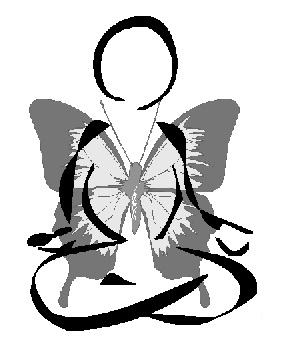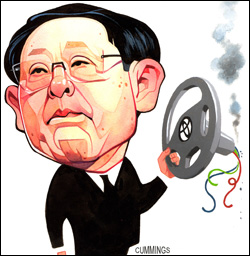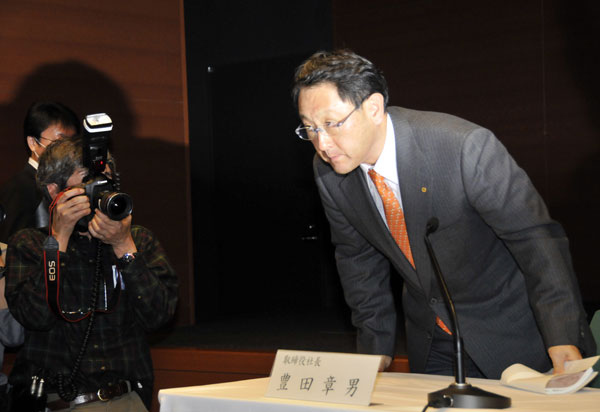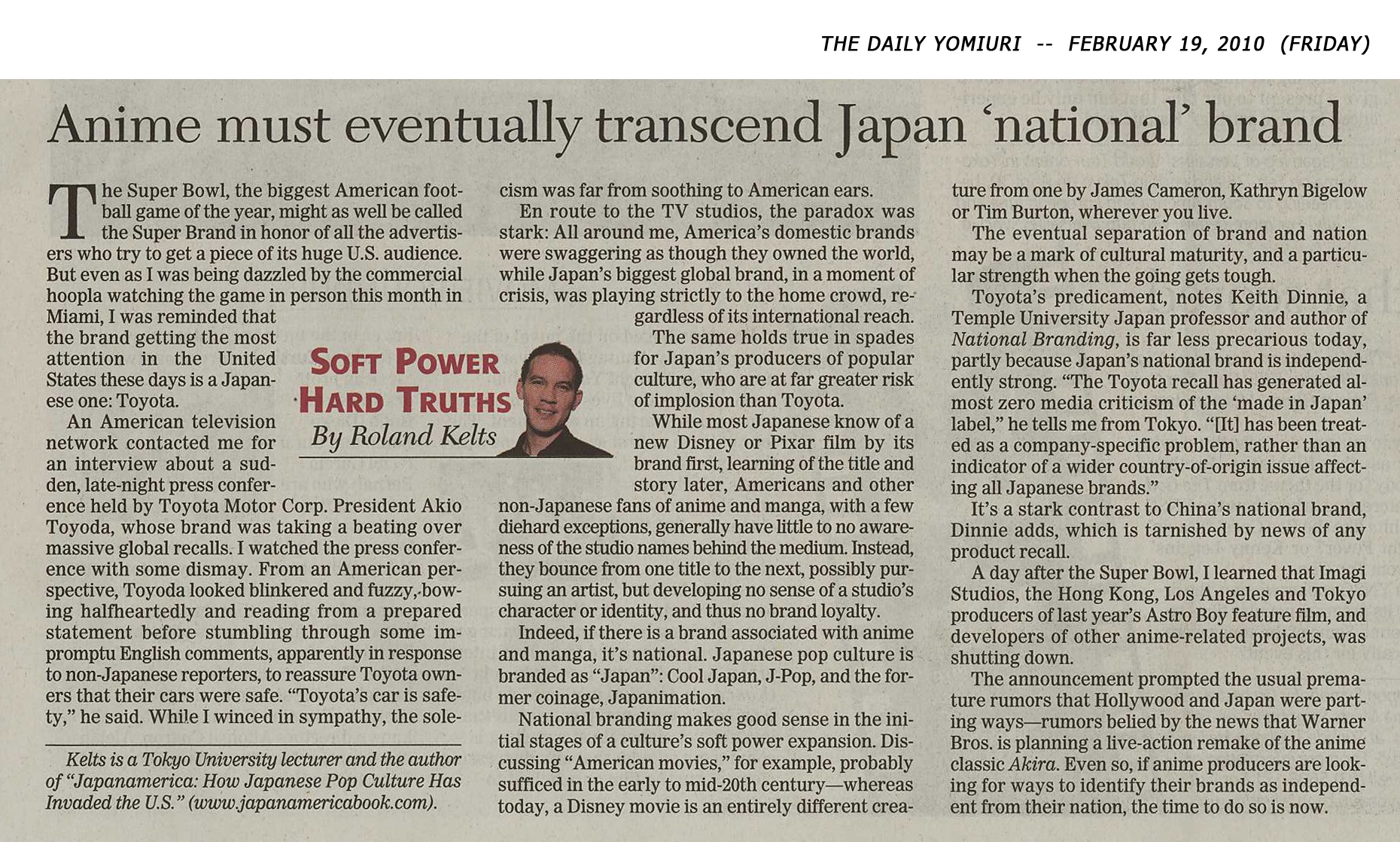Tom Baker interviews “Coraline” Oscar nominee
Tom Baker (Chiba-ken, 1989-91) is a staff writer for The Daily Yomiuri. A big part of his beat is the Pop Culture page, which covers manga, anime and video games. You can follow Tom’s blog at tokyotombaker.wordpress.com.
He also writes about movies. Here is his interview with stop-motion animator Henry Selick, whose film “Coraline” is a nominee for best animated feature in the Academy Awards to be presented on March 7:
When the nominees for best animated feature film are read out at the Academy Awards ceremony in Hollywood next month, there will be one computer-graphic animated film (Up), two traditional 2-D animated films (The Princess and the Frog and The Secret of Kells) and two stop-motion films (Fantastic Mr. Fox and Coraline).
“I feel very lucky to have lived long enough to still be making films in this era,” Coraline director Henry Selick told The Daily Yomiuri in Tokyo last week. His two previous features, Nightmare Before Christmas (1993) and James and the Giant Peach (1996) came out before the Oscars introduced an animated feature category in 2001.
Coraline has already won several other prizes, including an Annie animation award for Japanese production designer Tadahiro Uesugi.
Coraline, based on a novel by Neil Gaiman, is the story of a young girl who discovers a secret passage to an alternate universe where all the things that annoy her in the real world have been changed. But like a gingerbread house in a fairy tale, this seemingly delightful place turns out to be a trap from which she must escape.
Read the rest of the article here.
Tom Baker reviews “Uncharted” video games
Tom Baker (Chiba-ken, 1989-91) is a staff writer for The Daily Yomiuri. A big part of his beat is the Pop Culture page, which covers manga, anime and video games. You can follow Tom’s blog at tokyotombaker.wordpress.com.
Here is his latest video game review, of “Uncharted” and “Uncharted 2” which Sony recently released as a box set in Japan:
 My pal Nate is such a great guy that he keeps hanging out with me despite the fact that I’ve gotten him killed hundreds of times, usually by explosions, gunfire or plunges from cliffs. It’s a good thing he’s made out of pixels, or this relationship would be a lot harder on both of us.
My pal Nate is such a great guy that he keeps hanging out with me despite the fact that I’ve gotten him killed hundreds of times, usually by explosions, gunfire or plunges from cliffs. It’s a good thing he’s made out of pixels, or this relationship would be a lot harder on both of us.
Digital though he may be, Nathan Drake, the lead character in the Sony PlayStation 3 video games Uncharted: Drake’s Fortune (2007) and Uncharted 2: Among Thieves (2009), is so lifelike and likeable that it is not unusual for players to think of him as someone who really exists.
The two games, re-released Feb. 18 as a 7,980 yen box set, are swashbuckling adventures from the Indiana Jones school in which our hero and a few friends hunt for treasure in exotic locales while fighting off gangsters and pirates who are also after the loot. And also as in Jones’ world, events take a paranormal turn once the treasure is uncovered…
Read the rest of the review here.
Ask Dr. Muse-Life Coach: Time & Money
 Many JETs and JET alumni find themselves at a crossroads regarding their careers and career options. Nicole D. Mignone (Akita-ken, 1991-1993), a certified life coach, will be periodically posting articles for the benefit of the JET Community. You can read more of her life-related articles at her blog thealchemyofbalance.blogspot.com. She also offers individual life and business coaching. For more information, email Nicole at drmuse@jetwit.com.
Many JETs and JET alumni find themselves at a crossroads regarding their careers and career options. Nicole D. Mignone (Akita-ken, 1991-1993), a certified life coach, will be periodically posting articles for the benefit of the JET Community. You can read more of her life-related articles at her blog thealchemyofbalance.blogspot.com. She also offers individual life and business coaching. For more information, email Nicole at drmuse@jetwit.com.
Dear Dr. Muse:
I don’t have time for all these creative exercises you post and I can’t afford to leave my current job, what can I do? B.B., Texas
Dear B.B.:
A common lament even from people who love their current jobs is that they want more time but cannot give up their current income level . Your question may involve several underlying issues. First, ensure you have accurate information regarding your current financial situation. Do you have a budget and understand exactly how much money you need to live responsibly now and in the future? Understanding your money now empowers you so that life does not force you to understand it later [with harsher consequences, usually]. The internet offers many resources for self education on this topic.
This information allows you to strategically plan for a job search or transition and aim higher for salary and job satisfaction. Also, pay attention and be responsible for the words you choose to characterize your life. If you find yourself stating you cannot afford something, an internal alarm should sound. We can afford the things in life we truly need and want; we allocate our resources—time and money—toward what we value. Finally, evaluate whether this statement hinders you from having what you want and challenge its veracity.
A second issue concerns the scarce resource of time. If you operate from a premise that you can make more money but not time, you may assess your life differently. What would you like time for? How do you currently spend your time in a day? Can you adjust something and make time to plan a change in your life? Again, we spend our money and time on what we value, so what we really want we find a way. If you really do want time to plan and do these things, you will find time. If not, then investigate other ways to shift your thinking around your current job.
Finally, this type of question often arises when people are stressed and in “survival” mode. During times like this, it may be helpful to first assess your lifestyle and health before embarking on big changes. Get enough sleep, exercise, and choose to take care of your health so you have a clear mind and energy to do the things you want. I hope this was helpful.
If you want to expand on any of these areas, email me with questions.
Like hiring a personal trainer to reach your fitness goals, a personal life coach can assist you to attain your personal goals. You may write the Muse with any coaching questions, or inquiries into life coaching options on a one-time or ongoing basis at drmuse@jetwit.com.
Tom Baker’s review of “Ooku” manga
Tom Baker (Chiba-ken, 1989-91) is a staff writer for The Daily Yomiuri. A big part of his beat is the Pop Culture page, which covers manga, anime and video games. You can follow Tom’s blog at tokyotombaker.wordpress.com.
Here is his latest manga review, of Ooku by Fumi Yoshinaga:
With its shrinking population, chronically depressed birthrate and rising average age, Japan is fated for major social changes in the fairly near future. How that will play out remains to be seen, but Fumi Yoshinaga’s manga series Ooku: The Inner Chamber is an example of how popular art can tap into real-world social anxieties.
into real-world social anxieties.
Ooku is set in an alternate-history Japan that also faces a demographic crisis, but of a different type. In the 1630s, a mysterious epidemic called Redface Pox kills 75 percent of Japan’s men, while leaving women physically unharmed.
The disease lingers, the gender imbalance never rights itself, and Japanese society comes to resemble a colony of bees or ants, in which the large female majority does every kind of work while the male minority are seen as delicate creatures valued only for their “seed.”
With women forced to share the limited supply of men, the institution of marriage largely disappears, as only a rich woman can keep a husband all to herself. The wealthiest and most powerful woman of all is the shogun, who keeps a crowded male harem in the innermost chambers–the Ooku–of Edo Castle…
Read the rest of the review here.
Roland Kelts sought as commentator on Toyota by major media outlets
 If you’ve been following Toyota’s problems of late, then you may have also noticed JET alum Roland Kelts (Osaka-shi, 1998-99), author of Japanamerica, popping up a lot as a commentator.
If you’ve been following Toyota’s problems of late, then you may have also noticed JET alum Roland Kelts (Osaka-shi, 1998-99), author of Japanamerica, popping up a lot as a commentator.
He recently appeared on ABC’s World News Tonight. And even more recently he was commissioned to write an op-ed for the Christian Science Monitor to clarify some of the vast cultural misreadings evident in the Congressional Toyota/Toyoda hearings.
- Toyota and trust: Was the Akio Toyoda apology lost in translation? Stung by Toyota recalls, Toyoda had to convey sincerity – and bridge the gulf in communication styles between Japan and America. http://www.csmonitor.com/Commentary/Opinion/2010/0225/Toyota-and-trust-Was-the-Akio-Toyoda-apology-lost-in-translation
- Roland is also quoted in this AP article on Toyota: “Toyota President Battles Crisis in Family Company“ http://www.boston.com/business/articles/2010/02/19/toyota_president_battles_crisis_in_family_company/?page=full
And addressed the topic of Toyota in an interesting way in his recent Daily Yomiuri column on The Super Bowl, Toyota, Anime and Hollywood:
- SOFT POWER, HARD TRUTHS / Anime must eventually transcend Japan ‘national’ brand http://www.yomiuri.co.jp/dy/features/arts/20100219TDY11003.htm
And if you’re looking for commentary on non-Toyota topics, then you can listen to Roland’s recent appearance on NPR discussing a wild relic of Japanese popular culture, a viral video of Japanese ‘Jazz Opera,’ produced in 1986 by Tamori, the great comedian:
Mansfield Fellowship in Japan
Via JETAA DC President Michelle Spezzacatena:
Mansfield Fellowship in Japan
Federal employees with a strong career interest in issues of importance to the U.S.-Japan relationship now have the opportunity to apply for a Mike Mansfield Fellowship.
During the two-year program, Fellows spend a year working full-time in Japanese government offices, preceded by a year of full-time rigorous language and area studies training in the United States. After completing the program, Fellows return to their U.S. agencies with proficiency in Japanese and practical, firsthand experience with Japan and its government that enables them to contribute to their agencies’ Japan-related work.
For more information about the Fellowships, information sessions in Washington, D.C., and application guidelines, please visit www.mansfieldfdn.org or contact Ms. Sara Seavey, Program Assistant, Mansfield Fellowship Program at 202-347-1994 or sseavey@mansfieldfdn.org.
Application deadline: April 1, 2010.
The Mansfield Fellowship Program is administered by The Maureen and Mike Mansfield Foundation with the U.S. Department of State, Bureau of Educational and Cultural Affairs, as grantor.
Japanese Events New York City – Nihongo Dake Dinner
The Nihongo Dake Dinner is one of the few regular Japanese events in New York City designed to bring both Japanese and non-native Japanese speakers together. Currently run by Jon Hills for JETAANY (http://jetaany.org/), he’s also the founder of Hills Learning (http://www.hillslearning.com), a language school based in Grand Central, New York City.
The event usually numbers around 20 people, and is designed to be half Japanese, half non-native Japanese speakers. The Japanese participants come from all industries and backgrounds, from JETRO and JLGC to Mitsui and Nomura. There are also Japanese who are artists, recruiters, volunteers and students.
The past event held at the Congee Restaurant in Chinatown was a mix of languages, intimacy and fun. As mentioned before, the typical attendance for the Nihongo Dake Dinners is about 20, quite a number for a Japanese language speaking event in New York. This past event only housed 7 people, pushing all participants to try their Japanese skills and get to know each other a little better. Also thanks to our Chinese American participant Ann, we had Chinese translation when ordering and handling the bill.
If you’re involved in the JET organization please be open to signing up for future Nihongo Dake Dinners. If you know someone from JET and would like to go as a friend of JET, it’s also possible to attend. Japanese people who would like to meet English native speakers who have an interest in Japanese are also encouraged to attend. As one of the best Japanese Events in New York City, it’s an event that can’t be missed!
Request: Tokyo apartment and language immersion program info
*****
A request from WITLife writer Stacy Smith (Kumamoto-ken CIR, 2000-03):
My friend Ryoko is looking to get some information for a college classmate who is hoping to spend a short time in Tokyo studying Japanese. Can anyone help out with the following questions? If so, please contact her at sr960002 [at] gmail.com. Thank you and yoroshiku onegaishimasu!
1) Do you have any suggestions for safe, short-term apartment leases/rentals in Tokyo? Or any idea of how to search for one?
2) Also, do you have any suggestions for good Japanese language immersion programs in Tokyo? (The kind where you stay in the country/program for 1-3 months.)
Ask Dr. Muse-Life Coach: The Quest for the Dream Job Continues
 Many JETs and JET alumni find themselves at a crossroads regarding their careers and career options. Nicole D. Mignone (Akita-ken, 1991-1993), a certified life coach, will be periodically posting articles for the benefit of the JET Community. You can read more of her life-related articles at her blog thealchemyofbalance.blogspot.com. She also offers individual life and business coaching. For more information, email Nicole at drmuse@jetwit.com.
Many JETs and JET alumni find themselves at a crossroads regarding their careers and career options. Nicole D. Mignone (Akita-ken, 1991-1993), a certified life coach, will be periodically posting articles for the benefit of the JET Community. You can read more of her life-related articles at her blog thealchemyofbalance.blogspot.com. She also offers individual life and business coaching. For more information, email Nicole at drmuse@jetwit.com.
Over the past couple of weeks, a few different readers have emailed with questions related to finding the “creative spark” or inspiration for finding their passion in life through work. Here is another creative task that may help, inspired by the highly recommended book “The Artist’s Way,” by Julia Cameron.
Task 1: Collect magazines of different types that you can cut up. One afternoon or evening, listening to music or watching a movie, skim through the magazines and without judgment, purely on attraction only, cut out any words or images that appeal to you for any reason. Do not analyze the selection, but instead enjoy the sensory aspects of the images or words that appeal to you. Take all your cutouts and place them into a shoe box, folder, or envelope for another task later.
Task 2 [different day]: Reread your paragraph and list from the exercise of February 15, 2010. [If you did not do that exercise, you can still proceed with this activity] Then, gather the following materials: a poster board of any size; some glue; scissors; and your shoebox or envelope of magazine words/images from Task 1. Lay everything out on a table or work space, and while listening to some good music or during some quiet time, make a collage of all these words and images.
Task 3 [different day]: Take some time to really look at your collage and reflect on what it tells you about what inspires you, what you like, and the type of work/profession you would enjoy right now. What story does the collage tell about how you want to show up/be perceived in your profession? Take time to journal all the thoughts and feelings that arise in a stream-of-consciousness way while looking at your collage. You may wish to do this over a period of time as new ideas and expression bubble to the surface of your mind. May you be pleasantly be surprised at what is revealed to you about your dreams and desires.
Like hiring a personal trainer to reach your fitness goals, a personal life coach can assist you to attain your personal goals. You may write the Muse with any coaching questions, or inquiries into life coaching options on a one-time or ongoing basis at drmuse@jetwit.com.
*************************
WITLife is a periodic series written by professional Writer/Interpreter/Translator Stacy Smith (Kumamoto-ken CIR, 2000-03). She starts her day by watching Fujisankei’s newscast in Japanese, and here she shares some of the interesting tidbits and trends together with her own observations.
I just started an assignment as an interpreter for a delegation of young political leaders from Japan, divided about evenly between members of the LDP and the DPJ as well as one journalist. Over our first dinner tonight it was interesting to hear their respective viewpoints regarding various issues, especially ones that are personal to them. For example, one DPJ rep and one LDP rep were having a friendly debate regarding day care. Both of these men have wives who work and 3-year old daughters, and as they live in the Tokyo area child care options are limited. There are not enough facilities to meet current needs, and those that exist are deluged by requests leading to long waiting lists.
As part of the Manifesto, the DPJ has proposed the implementation of a 子供手当て (kodomo teate) of 26,000 yen per month to provide financial aid to those who have a child. The LDP, on the other hand, does not advocate this and thinks this money should instead be put toward Read More
Call for JET alum actors in the UK by Tea Leaf Theatre
Call for Japan-related actors,
Tea Leaf Theatre (www.tealeaftheatre.com) will be hosting some workshops to explore Japanese theatre.
We are looking for actors who has some sort of connection to Japan or has an interest in the culture.
The aim of these workshops is to explore how Japanese theatre skills can be transformed into British theatre context. These workshops will stretch your skills and enable you to look at acting from a different perspective.
Tea Leaf Theatre is a London-based theatre company. Our aim is to bring together the East and West through modern theatrical media such as physicality, projected images, and live music (think Theatre de Complicite).
Unfortunately, we are unable to offer you any payment at this stage. However, you will not only gain some Japanese traditional theatre techniques but also learn how to use them for your day to day acting requirements. (i.e., Auditions)
There’s no long term commitment required, you simply need to attend one or two day workshop over a period of time. Each session will focus on one element of Japanese theatre for you to explore.
There will be several sessions over this year. So if you are interested to be involved in this project, please send your CV, headshot, and a short description about your relation to Japan; to tealeaftheatre@gmail.com. We will send you further information on when they are going to happen.
Thanks for your help.
Tanroh Ishida
Artistic Director of Tea Leaf Theatre
tealeaftheatre@gmail.com / 077 9154 1749
WIT Life #77: Breakdown of the bow
WITLife is a periodic series written by professional Writer/Interpreter/Translator Stacy Smith (Kumamoto-ken CIR, 2000-03). She starts her day by watching Fujisankei’s newscast in Japanese, and here she shares some of the interesting tidbits and trends together with her own observations.
An interesting article this week in Slate analyzed the intricacies of the Japanese bow and its various gradations. It was in reference to the apology by Toyota President Akio Toyoda at a press conference last week regarding the company’s massive vehicle recall. His chosen bow was a keirei, or 30-degree tilt to show respect, though some say he should have opted for a saikeirei, or full 45- to 90-degree bow intended to show the greatest veneration or humility.
With the amount of damage control that Toyota needs at this point, perhaps it is true that Toyoda should have overshot with a deeper bow. However, critics were likely placated by yesterday’s news that Toyoda will testify before Congress regarding the recalls, something he had previously said he had no intention of doing. The threat of being subpoenaed by investigators seemed to have persuaded him to accept the formal invitation issued by the House Oversight and Government Reform Committee that followed an informal one. It remains to be seen how reassuring his testimony will be to the American public.
C-DOC: Why Businesses Should Learn Chinese
The Chinese Doctor is a recurring feature written by Friend Of JET, Jon Hills, who maintains the blog for Hills Learning (www.hillslearning.com).
Hills Learning is a NY-based language learning services company offering customized and personal Chinese, Japanese and Korean language learning options. Their main service is private one on one language lessons in the NYC area.
The buzz language in New York City these days is Chinese. Whenever you speak with someone about new business opportunities China will usually enter into the conversation. But is Learning Chinese really worth it? In a bilingual world where Chinese people are moving to New York City, you would think just a trusted in house translator would suffice for companies doing business in China. This article will argue that at least learning the basics of Chinese can jump start your business and give you the edge when winning contracts in the competitive Chinese market.
Quick Impressions Are Everything So you’re going to sit down with a Chinese business and attempt to negotiate a contract with them. Of course the thing they care about most is their bottom line, and how much it will cost to do business with you. But let’s say your prices are relatively similiar to your competitors…
Click here for the rest of the article, including other Chinese language and culture articles
Ask Dr. Muse-Life Coach: How Do I Find My Dream Job?
 Many JETs and JET alumni find themselves at a crossroads regarding their careers and career options. Nicole D. Mignone (Akita-ken, 1991-1993), a certified life coach, will be periodically posting articles for the benefit of the JET Community. You can read more of her life-related articles at her blog thealchemyofbalance.blogspot.com. She also offers individual life and business coaching. For more information, email Nicole at drmuse@jetwit.com.
Many JETs and JET alumni find themselves at a crossroads regarding their careers and career options. Nicole D. Mignone (Akita-ken, 1991-1993), a certified life coach, will be periodically posting articles for the benefit of the JET Community. You can read more of her life-related articles at her blog thealchemyofbalance.blogspot.com. She also offers individual life and business coaching. For more information, email Nicole at drmuse@jetwit.com.
Dear Dr. Muse:
I am ready for a career change, but I have no idea what I really want to do. My current job is one that personality and career aptitude tests said I would be good at, but I am still not in love with my job. Any ideas? Cindy B. in New Jersey.
Dear Cindy B:
A vocation calls to us because of our experience, skills, and education; an avocation, however, calls to us from a deeper place. Sometimes we need a stable vocation to allow us to pay the bills and fulfill our obligations. If you feel restless and yearn for more, and if your discontent does not relate to some imbalance in other areas of your life [see other Dr. Muse posts related to this topic], then perhaps it is time to identify the ember of your avocation and fan it to a fire. The following two tasks may help you:
Task 1: Pick 4 jobs from your past and your very first job.. On the blank pages of your journal, draw 5 big circles with some space between [you may need several pages] . Above the circle, label the job. Then, for each job, inside the circle write 3 to 4 things about that particular job that you liked–e.g., projects; people; environment; anything. On the outside of the circle, write 3 to 4 things about that job that you did not like. Next, in a different color ink, go back and write inside the circle how you felt AT the job. Take your time to think and feel the whole experience of your past jobs.
Task 2 [different day]: Take out your circles of past jobs. On a single sheet of paper write a list all the items you wrote inside the circles.
When you are finished, take a moment to read through the list of all the things you liked about the past jobs. Then, reflecting on this list, write a paragraph describing as many details about the characteristics of the job/environment you like. Add anything else to this paragraph about the profession, such as your ideal day, the ideal coworkers, and ideal environment. This should provide the template for your avocation and you can analyze your current choice or potential choices against this template. The task is aimed at starting the process for exploration, and I wish you a happy journey on this adventure!
Like hiring a personal trainer to reach your fitness goals, a personal life coach can assist you to attain your personal goals. You may write the Muse with any coaching questions, or inquiries into life coaching options on a one-time or ongoing basis at drmuse@jetwit.com.
Job: Development Associate – Noguchi Museum (Long Island City, NY)
Via the Philanthropy News Digest Jobs Alert:
Development Associate
http://foundationcenter.org/pnd/jobs/job_item.jhtml?id=166700052
Noguchi Museum (Long Island City, New York)
http://www.noguchi.org/
Founded by internationally renowned Japanese-American artist Isamu Noguchi, The Noguchi Museum is the first museum in America to be established by a living artist for the display of his own work. When Noguchi opened the Museum to the public in 1985, he established The Isamu Noguchi Foundation, Inc. to manage it. In February 2004, the Museum and the Foundation were consolidated into a single entity, The Isamu Noguchi Foundation and Garden Museum, receiving a 501(c)(3) public charity status from the IRS. An extremely dedicated Board and staff are committed to the aesthetic that Noguchi articulated through his expansive body of work represented in the Museum and to extending his reach through exhibitions and public and educational programs.
In 2004, the Development Office was established to solicit, for the first time, support on a continuous basis from individuals, corporations and foundations, and to build upon the government support that the Museum had received throughout the years. Over the past five and a half years, the Museum has launched a comprehensive development plan and has successfully met and exceeded its fundraising goals. The Isamu Noguchi Foundation and Garden Museum seeks a Development Associate to assist in furthering the Museum’s campaigns to raise foundation, corporation, government, and individual support. The Development Associate reports to the Director of Development.
Specific responsibilities:
- Work with and assist Director of Development to draft proposals, letters, reports, and other fundraising materials;
- Coordinate the production and mailing of annual appeals;
- Oversee the Museum’s membership program;
- Manage the donor database (Raiser’s Edge), which includes processing gifts and acknowledgements, and generating reports and solicitation lists;
- Identify and research donors and prospects;
- Assist in organizing the Museum’s annual gala benefit and donor cultivation events;
- Perform general administrative duties as needed.



